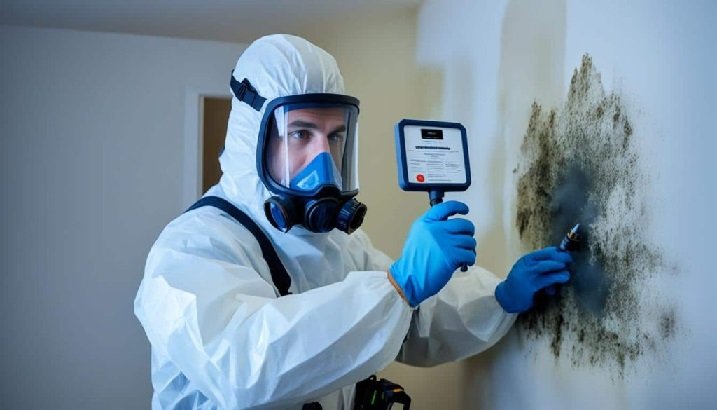Recovery from substance abuse and addiction is a challenging but life-changing process. For many individuals seeking a solution, inpatient rehabilitation offers a structured pathway toward a healthier, substance-free life. New Jersey, with its array of inpatient rehab NJ, provides an ideal environment for individuals looking to recover in a safe, controlled, and supportive setting.
The text investigates how NJ inpatient rehab facilities develop a structured recovery setting through the identification of their essential advantages and fundamental processes and resulting outcomes.
Why Structure Matters During Recovery
The biggest obstacle to conquer addiction stems from the lack of structure that typically emerges with substance dependency. Confirmed research reveals that addictive behavior develops best when sleep disruption combines with impulsive conduct and damaging surroundings. Success throughout recovery requires the framework of structure because it provides both accountability and purpose as well as a predictable environment.
Inpatient rehabilitation centers in New Jersey work to develop strict daily programs which develop valuable behaviors to sustain recovery success over time. Here’s how they achieve this:
- Through established schedules the healing process remains the main priority for patients who participate in therapy exercise and group activities.
- The system of accountability enables people to monitor their development toward achieving their recovery goals.
- Recovery facilities control exposure to triggers and temptation in order to prevent patients from relapsing.
NJ inpatient rehab provides its clients numerous advantages
1. 24/7 Medical Supervision and Support
Getting help through inpatient rehab provides round-the-clock availability of medical staff as an essential benefit. Medical professionals who administer proper care remain available at all times because staff training allows for 24/7 medical support at the treatment facility.
Patients require continuous medical support during the detox phase because symptoms can be potentially dangerous. The healthcare staff monitors patient health conditions to manage symptoms and intervene when complications occur.
Every individual can access ongoing emotional support at the rehabilitation facility that serves as a base of trust and reassurance through times of anxiety or doubt.
2. Safe and Structured Environment
Those who battle addiction commonly need to leave their homes because their familiar settings include relationships which harm and stressful circumstances and direct substance access. The inpatient facilities in New Jersey take patients from dangerous settings where triggers are likely to occur by putting them in a healing-focused environment that is free of triggers.
The program has planned sessions for therapy along with leisure activities and personal time which collectively serve to maintain concentration and achieve equilibrium. Within this controlled environment people find stability which enables them to develop their life again.
3. Personalized Treatment Plans
Every person has unique experiences in their recovery path because each individual brings distinct qualities from one another. An evaluation process serves as the initial stage for NJ inpatient rehab programs where staff members identify individual requirements alongside personal background information and environmental factors for each enrollee. Major components from collected information are used to create personalized treatment strategies which yield maximum results.
The standard approach for treatment involves multiple therapy types which include:
- Each treatment plan includes personal therapy to resolve essential psychological issues.
- Group therapy serves to build relationships between members while creating shared personal experiences.
- Patients benefit from behavioral therapy which explores the connection between their thoughts and behavioral patterns in addiction.
- Emotional well-being support comes from yoga along with art therapy as holistic wellness methods
Each patient receives individual attention that leads to progress through personalized healthcare at inpatient facilities.
4. Building a Supportive Community
Inside inpatient programs patients experience a critical change because they join a supportive communal environment. Within the patient community people develop strong bonds with others who face the same difficulties because they share common experiences.
The combination of group therapy with communal eating and recreational group activities enables patients to form meaningful friendships. The interactions within these facilities create feelings of support and reduce isolation as they enhance accountability in patients’ recovery journeys.
The substance abuse clinic creates lasting relationships that continue supporting former patients once they have finished their hospital stay.
5. Focused Time for Healing and Self-Reflection
Patient recovery benefits from separation from daily life commitments when receiving treatment within a hospital facility. This period stands essential for people who need to dedicate themselves exclusively to recovery tasks.
Patients receive the chance to properly analyze and treat their addiction by spending time free of work constraints and isolated from familiar surroundings. The ability to examine oneself deeply represents a necessary step for making lasting transformation.
6. Relapse Prevention Strategies
Long-term addiction recovery success relies on managing addiction triggers along with cravings because standard treatment like detoxification and therapy sections off only brief time periods from addiction use. The rehab centers of New Jersey focus on preventing relapses through combined educational efforts and training of coping skills and aftercare planning.
The implemented methods give people the essential resources to confront the difficulties of new sober life through:
- People must develop healthy habits to replace their damaging actions.
- Patients should learn how to handle both stress and social situation triggers.
- Healthcare professionals teach patients successful methods to manage their craving episodes.
Through rehab the sense of preparedness combined with confidence leads patients toward achieving long-term recovery.
7. Holistic Healing and Wellness
When a person develops addiction their complete existence takes damage from bodily to mental to emotional parts alongside their social network. Many inpatient rehab facilities in New Jersey integrate complete healing methods by combining wellness practices with established recovery techniques.
Some holistic practices may include:
- Patients receive nutritional advice for physical health restoration
- Mindfulness meditation for stress reduction
- The establishment of physical fitness programs works for rebuilding both strength and stamina of patients.
- Emotional exploration becomes possible through creative therapeutic exercises that avoid verbal expressions.
People who participate in this programming receive authentic recovery because the services treat each person completely leading to life balance restoration.
The Role of New Jersey in Supporting Recovery
Inpatient rehab services in New Jersey exist within a special environment that includes downtown accessibility along with peaceful natural settings. The combination of modern facilities with relaxing natural environments at state locations creates perfect locations for patients to recover.
The community-focused culture of NJ enables patients to experience acceptance through support from their surroundings. Most people establish lifelong supportive connections in rehab centers which extend throughout New Jersey’s recovery networks.
Recovery Is Possible with a Structured Approach
Through the standardized approach offered by New Jersey inpatient rehab facilities patients can attain addiction recovery. Treatment facilities help people view fresh starts in safe settings where they can obtain holistic tools for leading addiction-free lives with their customized plans.
Taking the first step to enroll in hospital-based treatment shows great determination for change. The process of finding structured inpatient care starts through a direct contact today for anyone looking for addiction treatment.
Read More Blogs:-)











